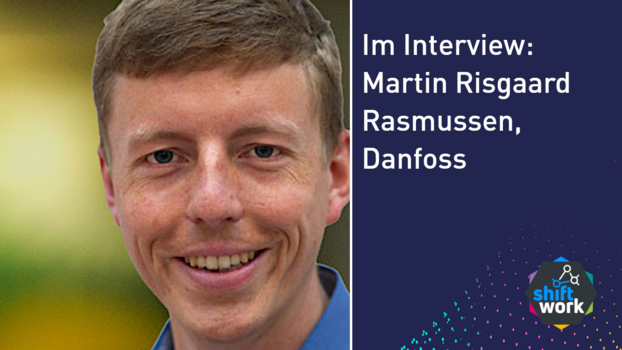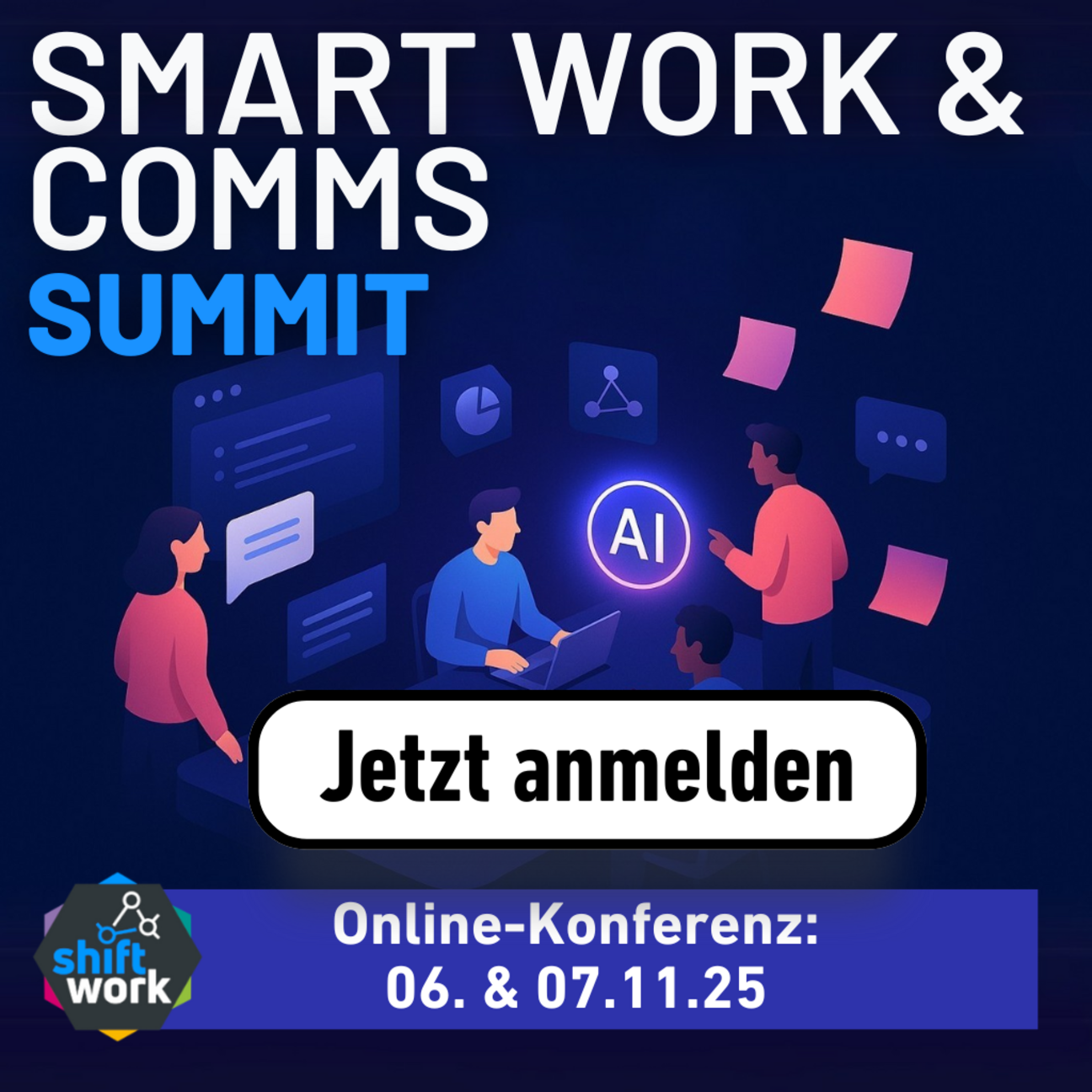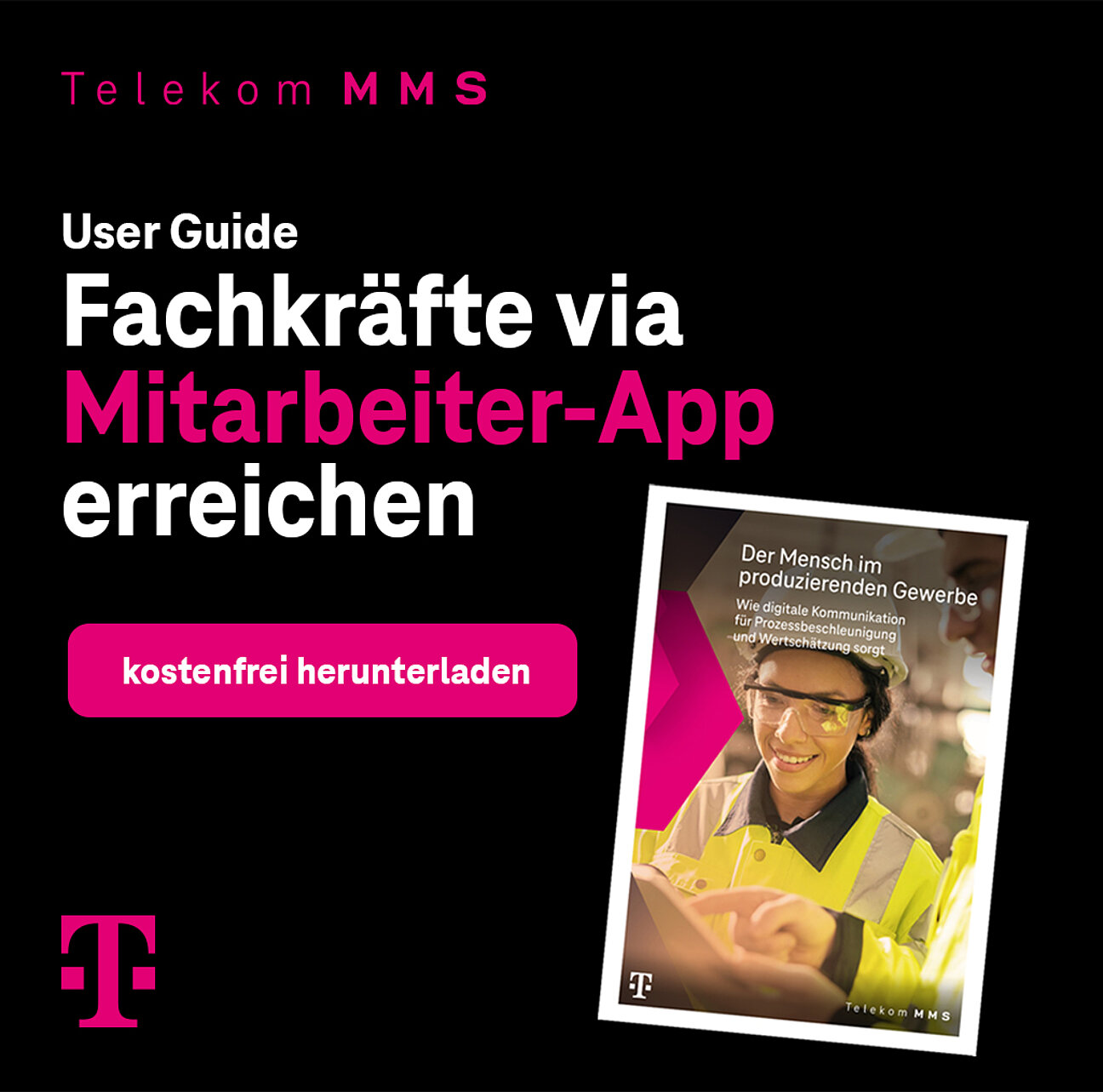
Martin Risgaard Rasmussen ist ein Adoption- und Change-Management-Experte, wenn es um die Etablierung neuer, digitaler Formen der Zusammenarbeit geht. Seit 2001 arbeitet er an der Schnittstelle zwischen Mensch und Internet. Bei seiner Arbeit konzentriert er sich darauf, Technologien für Menschen besser nutzbar zu machen.
Martin ist ein Prosci Certified Advanced Instructor und hat umfangreiche Expertise, was erfolgreiche Veränderungsprojekte angeht. Sein Hintergrund bietet ihm eine breite Sicht auf die Projektfelder und Herausforderungen bei der Veränderung von Arbeitsweisen.
Martin ist außerdem ein erfahrener Redner auf verschiedenen Digital-Work-Veranstaltungen, so auch bei denen unserer Plattform Shift/Work. Beim Digital Work FORUM spricht er über die Notwendigkeit zur Einführung eines systematischen Veränderungsansatzes, wenn es um nachhaltige Erfolge bei Digital Work geht.
Need for systematic change for making hybrid work sustainable
In der Vorbereitung auf das Digital Work FORUM und seinen Einführungsvortrag haben wir Martin ein paar Fragen zum „Warum“ und „Wie“ bei der Optimierung des Veränderungsmanagements für die Etablierung neuer Formen der Zusammenarbeit gestellt:
1. What are the three hashtags that we can label your talk with?
#changemgmt, #ADKAR, #changeforareason
2. What are the biggest challenges in the digital transformation of work for you?
I see two main challenges for the transformation. One is on the management side where we now see the counter-effect of the COVID lockdowns and managers who now tries to move back to the "old ways of work".
The second part is more around the classical discussion on making sure people understand the "what's in it for me" around the digital work. We have learned a lot over the last 3 years, but the digital transformation of the workplace is a moving target, so in no way does this mean that we are done.
3. Why do we need change management when everbody is already using Microsoft Teams?
At the core change management is about individuals and it remains important to reinforce the behaviours about using the online collaboration tools. You may argue that we are "done", but if you take a long hard look at what people actually use the applications for, are we then really using the full potential?
4. How can we formalise the change management for the digital transformation of work?
In my opinion the answer here is deceptively simple but complex to implement: Always focus on the individual and the "why" and "what's in it for me?". We still fall in the trap of new features and functions and some times lose sight of what this will actually help us achieve.
5. What does it mean to establish the organizational competency to manage change?
Change management at an organisational level is essentially a management competency. It can be for formal managers, but it can also be about "managing yourself" thus becoming more change ready. If you try to build some muscle memory in the organisation to always think about who will be impacted by a change - and perhaps also think about your own attitude towards change - you are likely to build a more resilient organisation.
6. What are your expectations for the Digital Work FORUM?
And what can we expect from your participation? I'm very muh looking forward to the day and I hope I will be able to provide some food for thought. Change management is not a new discipline, but working with change is often a change project in itself - something that is often overlooked.
Thanks a lot for your answers, Martin.
Wir legen großen Wert auf sachliche und unabhängige Beiträge. Um nachvollziehbar zu machen, unter welchen Rahmenbedingungen unsere Inhalte entstehen, geben wir folgende Hinweise:
- Partnerschaften: Vorgestellte Lösungsanbieter können Partner oder Sponsoren unserer Veranstaltungen sein. Dies beeinflusst jedoch nicht die redaktionelle Auswahl oder Bewertung im Beitrag.
- Einsatz von KI-Tools: Bei der Texterstellung und grafischen Aufbereitung unterstützen uns KI-gestützte Werkzeuge. Die inhaltlichen Aussagen beruhen auf eigener Recherche, werden redaktionell geprüft und spiegeln die fachliche Einschätzung des Autors wider.
- Quellenangaben: Externe Studien, Daten und Zitate werden transparent kenntlich gemacht und mit entsprechenden Quellen belegt.
- Aktualität: Alle Inhalte beziehen sich auf den Stand zum Zeitpunkt der Veröffentlichung. Spätere Entwicklungen können einzelne Aussagen überholen.
- Gastbeiträge und Interviews: Beiträge von externen Autorinnen und Autoren – etwa in Form von Interviews oder Gastbeiträgen – sind klar gekennzeichnet und geben die jeweilige persönliche Meinung wieder.







